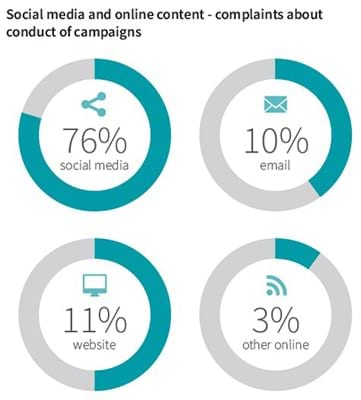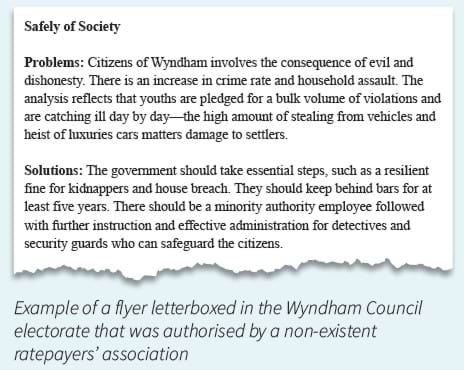In 2020, complaints about the use of social media and online content in election campaigns more than tripled, from 78 in 2016 to 266 in last year. We received an increase of 118 per cent of complaints about the authorisation of election material during the 2020 election period and 31 per cent of all issues raised were about content that was specifically published online.
These figures show that social media’s impact has continued to grow since the 2016 elections. The rise of social media as a key campaign tool was exacerbated by the closure of many local papers during 2020.7 While social media provides an economical way for candidates with limited financial backing to reach the electorate, it can produce challenges for existing legislation.
The current legislation does not cater for the fast and fluid social and new media forums. We received many enquiries in relation to Twitter and whether tweets constituted election material that was required to be authorised. We received enquiries about the same issues arising around Facebook and received several formal complaints about the use of group emails. With the continuing dominance of the social media, we support a review of the current laws and how they operate in the new media landscape, or a tailored legislative approach for social media uses.
7. See Traditional media.
Case study
Updated



